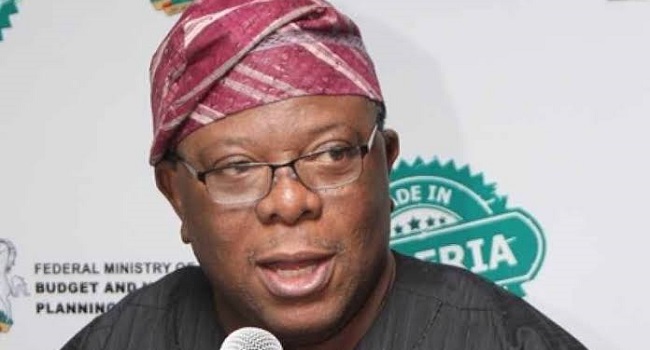Business
NESG urges FG to make policies to ensure less dependence on foreign loans

The Nigeria Economic Summit Group (NESG) has advised the Federal Government to take tough but necessary policy choices, to be able to improve on its revenue and reduce its dependence on foreign and local loans to fund the budget deficit.
Mr Laoye Jaiyeola, Chief Executive Officer (CEO) of NESG, gave this advice in an interview, on Friday, February 19, in Abuja.
Jaiyeola, also a past President of Chartered Institute of Bankers of Nigeria (CIBN), said that, though the debt to GDP ratio could be low, the revenue that went into debt servicing was still on the high side.
“We should all be worried about the rising debt profile of the country.
“Some people say that the debt to GDP ratio is still low. It could be low, but servicing debt is still a problem.
“In the last two years, 25 per cent to 30 per cent of our revenue have gone into servicing debt, which now stands at N32.223 trillion.
“If we expend such huge sums on debt servicing, what about recurrent expenditure? What about capital expenditure?
“It means we will be moving deeper and deeper into debt,” he said.
The NESG CEO emphasised that the major concern was how the debt would be continuously serviced.
He suggested a drastic cut in recurrent expenditure, as well as the removal of subsidies in electricity and petroleum products, as a way of reducing the debt burden.
Jaiyeola also suggested improved security to be able to attract more enduring and sustainable foreign investments that can boost government revenue.
“We must make tough choices. We cannot borrow ourselves out of problems.
READ MORE: Nigerian economy needs about N10.1trn stimulus to recover from COVID-19 –NESG
“Government should be ready to take such choices; labour must be ready to accept those choices, and Nigerians must be ready to accept such choices.
“For a start, what government spends on recurrent expenditure is not sustainable. Our tariff on electricity is lower than most countries in West Africa, the pump price of petrol in Nigeria is still lower than that of our neighbouring countries.
“Above all, we need security, physical security, financial security, emotional security. These will help attract investment to our country and contribute to economic growth,” he said.
Jaiyeola also advised the government to encourage consumption of locally manufactured goods and services to reduce pressure on the Naira and make it stable.
“The reason we all care about the value of the Naira to the Dollar is because we need to import.
“If we can access good medical facilities at home, good education, and we do not import fuel, we will not care about the value of the Dollar.
“If we produce what we consume and consume what we produce, the value of the Naira will stabilise,” he said,
Join the conversation
Support Ripples Nigeria, hold up solutions journalism
Balanced, fearless journalism driven by data comes at huge financial costs.
As a media platform, we hold leadership accountable and will not trade the right to press freedom and free speech for a piece of cake.
If you like what we do, and are ready to uphold solutions journalism, kindly donate to the Ripples Nigeria cause.
Your support would help to ensure that citizens and institutions continue to have free access to credible and reliable information for societal development.
























